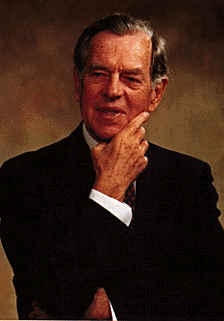movies. I thoroughly enjoyed Aronosfsky's The Fountain and Pi. But
before you go off and rent these, it's best to prepare a little. The
movies are rich in mythological themes. I'll butcher these here.
The Fountain.
The Fountain's trailers (http://thefountainmovie.warnerbros.com/) will
tell you the movie's about a man named Tom (in three different ages,
as a warrior, scientist and astronaut) looking for a way to save his
queen, the woman he loves. He wants to conquer death for her. The
movie, however, is sooo much more.
The Tree of Life in the astronaut era is clearly taken from Norse
mythology Yggdrasil (the bubble around it gives it away). Yggdrasil
symbolizes the axis of the world; the tree is in the center of the
world. The World Tree had saved Líf and Lífthrasir, the only man and
woman to survive Ragnarok (the end of the world).
Tom in the movie fails to conquer death. Instead, what he finds is
rebirth in the same way Native Americans thought of rebirth, as well
as Christians. All throughout the Americas and other places around the
world there have been myths of a person who is killed so others would
live. This, somehow, is symbolized by food. Food represents the body.
The Iroquois tell a story about a man who dies, and out of his dead
body grows the first corn stalk. Whenever you eat corn, you eat of his
body.
Another Native American tribe uses a similar story to justify killing
of a buffalo. A father is killed by the buffalo; his daughter
resurrects him with song; the buffalo asks the daughter to sing the
song for any dead buffalo. They tell her they will willingly come to
be slaughtered if she'll sing the song to resurrect them. She does.
The tribe sings when they kill buffalo; this makes it ok to kill them.
It's a way of thanking the buffalo for their sacrifice. (Joseph Campbell tells it much better than I do.)
The Maya also have a Tree of Life sacrifice as portrayed in the movie.
They also believe the gods are the Milky Way, exactly where the
astronaut is heading. The astronaut eats of the tree to live. He and
the tree are really one.
Egyptians have Osiris. He was killed, thrown in the river Nile, and
when his sarcophagus came ashore a great tree grew around and
completely enveloped the tree.
And, of course, Christians believe in a God killed on a tree, who was
then resurrected. Think of the sacrament.
So what is "The Fountain." The very thing Tom is trying to conquer
(death), is in fact the fountain of life. He finds the tree of life,
he drinks from it, and what happens? I'll let you watch the movie.
Suffice to say, when I'm buried, I want a tree to be planted on top of me.

Pi.
Pi is about a number (3.14141414...) and a pattern that a
mathematician is trying to find—the pattern that describes life. Lots
of headaches trying to get to it.
He finds the pattern, but when his computer tries to print it out,
it's unraveled by its own make-up. The pattern unravels. And what does
it create? It creates life through spiralling upward from the
beginning of its pattern. The pattern of "chaos." The pattern of the
transcendent being. The pattern of the Torah.
And the pattern serves as a predictor. It can predict anything. What
is the spiral then? The spiral represents a brain, the make-up, the
DNA, all life. But that means it can also predict the stock market,
the way to beat a person in Go, chess, whatever. The main character
looks at a shell with a spiral. The spiral is in the Milky Way
(similar to The Fountain).
![]()
Pi includes many ideas of Dan Winter, founder of the San Graal School
for Sacred Geometry. According to the Internet, the guy's obsessed
with the Holy Grail, chaos theory, DNA, aliens, etc. Used to work for
IBM. He's a Celestine Prophecy guy. We know where that ends up (at
Machu Picchu and disappearing).
Dan believes people should not live in metal houses or they'll die
sooner; people should live in Mother Nature (See interview here
http://www.newdawnmagazine.com/articles/A_Blissful_Interview_with_DAN_WINTER.htm).
Weird guy.

So there you go. Neat movies. Neat ideas. Enjoy!




